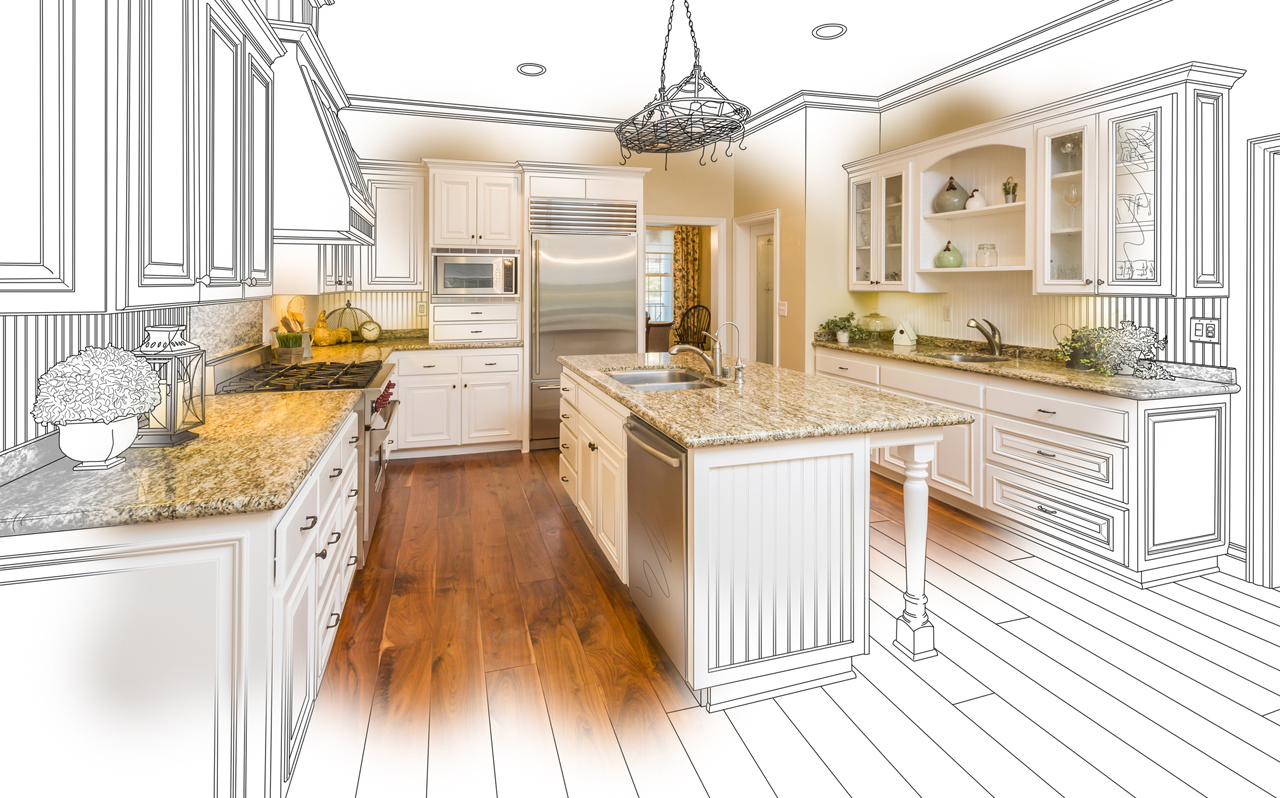6 Things You Must Know About Home Remodeling
Before you start the project, figure out how you will pay for it.


1. Make a plan. If you're thinking of renovating your home, start by talking with remodelers and lenders to figure out whether your ideas are financially feasible. How much will you pay out of pocket? How much will you need to borrow? You could pay with a credit card, but that's probably your most expensive option. Home-equity borrowing makes the most sense for larger projects. You can generally borrow up to 80% of the appraised value of your home (that amount includes all housing debt). Once you sign a contract, the remodeler will require a down payment, with additional payments due at specified intervals.
Advice From Houzz: 7 Modern Additions to Older Homes
2. A refi could make sense. If you haven't locked in a super-low interest rate, you could refinance your mortgage and take out cash. In late June, the average 30-year fixed rate nationally was 3.5%, according to Freddie Mac; you'll pay a somewhat higher rate on a cash-out refi. If you have enough equity, you can roll the closing costs (about 1.5% to 3% of the loan amount, on average) into the loan. Allow about 45 days to close.
3. Take a lump sum. Home-equity loans are fixed-rate loans that you repay in equal monthly payments over a term of five to 20 years. They are best for onetime projects, such as replacing the roof or the heating and air-conditioning system. In late June, the average rate nationally was 6.1%. But lenders are increasingly reluctant to offer home-equity loans because of regulations resulting from the Dodd-Frank financial reform, says Keith Gumbinger, of HSH.com.

Sign up for Kiplinger’s Free E-Newsletters
Profit and prosper with the best of expert advice on investing, taxes, retirement, personal finance and more - straight to your e-mail.
Profit and prosper with the best of expert advice - straight to your e-mail.
4. Open a home-equity line of credit. It's easier to get a HELOC, which you tap when you need the money. You'll pay a variable rate of interest only on the amount you withdraw. You can usually make interest-only payments for 10 years, after which you must repay principal and interest. In late June, the average variable rate was 5.5% nationally. If rates head higher, you may be able to repay portions of your credit line at a fixed rate over a fixed term. You can close on the line in about 30 days, and your only costs may be for a credit check and appraisal. You can use the line after you complete your project, but watch out for a penalty if you pay it off within three years.
5. Take out a construction loan. If you're planning to completely renovate your present home or build a new one, a construction loan will maximize your borrowing power because the lender will generally lend against the appraised future value of the home. You may be able to lock in your interest rate during the period allowed for construction (from six to 18 months, depending on the lender); during that time, you'll make interest-only payments on the amount disbursed. When construction is complete, the loan will convert to a permanent mortgage. Depending on the lender, you can get a fixed or variable rate. EverBank recently offered a rate of 3.1% to borrowers with the best credit for a 5/1 ARM of $250,000, with a 12-month construction period.
6. Pay cash and ask for a discount. Loren Schirber, a remodeler in the Twin Cities area, offers clients a discount of 2.5% of the project price if they pay in cash instead of with a credit card. If your builder doesn't offer a discount up front, ask for one.
Advice From Houzz: Design Tips to Energize Your Bathroom
Get Kiplinger Today newsletter — free
Profit and prosper with the best of Kiplinger's advice on investing, taxes, retirement, personal finance and much more. Delivered daily. Enter your email in the box and click Sign Me Up.

-
 Stock Market Today: Stocks Soar on China Trade Talk Hopes
Stock Market Today: Stocks Soar on China Trade Talk HopesTreasury Secretary Bessent said current U.S.-China trade relations are unsustainable and signaled hopes for negotiations.
By Karee Venema
-
 2026 Disney Dining Plan Returns: Free Dining for Kids & Resort Benefits
2026 Disney Dining Plan Returns: Free Dining for Kids & Resort BenefitsPlan your 2026 Walt Disney World vacation now. Learn about the returning Disney Dining Plan, how kids aged three to nine eat free, and the exclusive benefits of staying at a Disney Resort hotel.
By Carla Ayers
-
 How to Search For Foreclosures Near You: Best Websites for Listings
How to Search For Foreclosures Near You: Best Websites for ListingsMaking Your Money Last Searching for a foreclosed home? These top-rated foreclosure websites — including free, paid and government options — can help you find listings near you.
By Bob Niedt
-
 Luxury Home Prices Rise as the Rich Dodge High Mortgage Rates
Luxury Home Prices Rise as the Rich Dodge High Mortgage RatesLuxury home prices rose 9% to the highest third-quarter level on record, Redfin reports, growing nearly three times faster than non-luxury prices.
By Kathryn Pomroy
-
 Four Tips for Renting Out Your Home on Airbnb
Four Tips for Renting Out Your Home on Airbnbreal estate Here's what you should know before listing your home on Airbnb.
By Miriam Cross
-
 Five Ways to Shop for a Low Mortgage Rate
Five Ways to Shop for a Low Mortgage RateBecoming a Homeowner Mortgage rates are high this year, but you can still find an affordable loan with these tips.
By Daniel Bortz
-
 Looking to Relocate? Plan for Climate Change
Looking to Relocate? Plan for Climate Changebuying a home Extreme weather events are on the rise. If you’re moving, make sure your new home is protected from climate change disasters.
By Rivan V. Stinson
-
 Retirees, A Healthy Condo Has a Flush Reserve Fund
Retirees, A Healthy Condo Has a Flush Reserve FundSmart Buying Reserve funds for a third of homeowner and condo associations have insufficient cash, experts say. Here are some cautionary steps you should take.
By Patricia Mertz Esswein
-
 Cash Home Buyers: New Services Offer Help Making All-Cash Offers
Cash Home Buyers: New Services Offer Help Making All-Cash OffersBecoming a Homeowner Some firms help home buyers make all-cash offers on homes. Weigh the fees before you sign on.
By Emma Patch
-
 Home Sale Prices in the 50 Largest Metro Areas
Home Sale Prices in the 50 Largest Metro AreasBecoming a Homeowner What’s happening in the market where you live?
By the editors of Kiplinger's Personal Finance